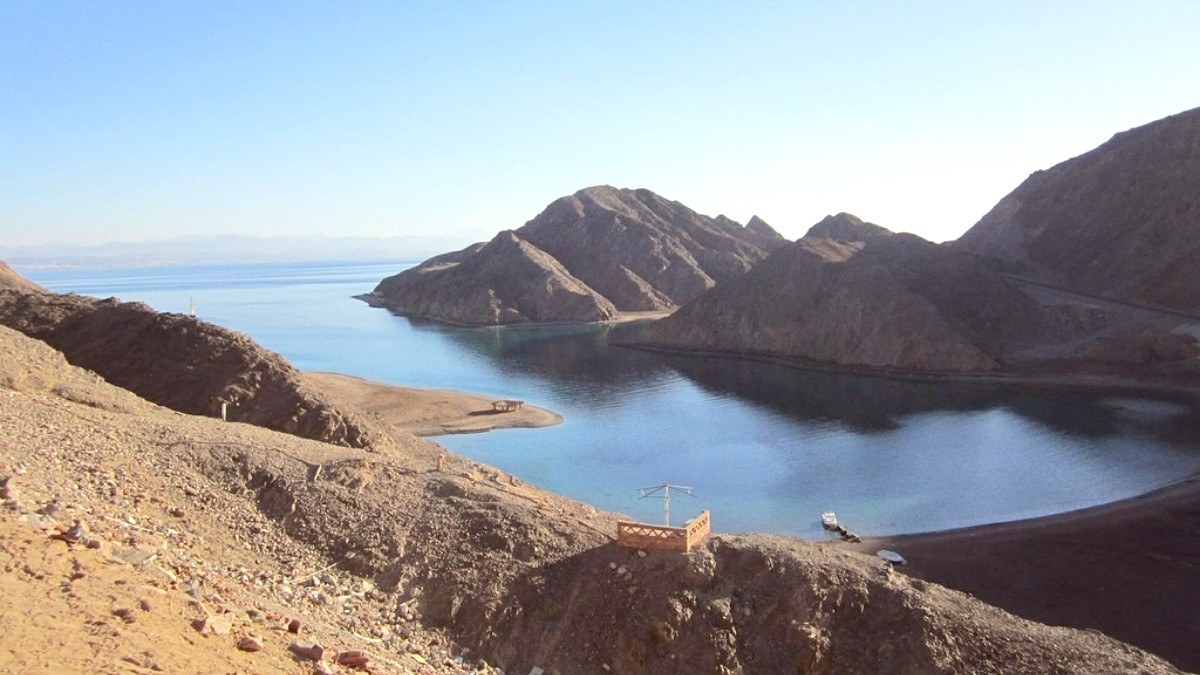
Sinai, Egypt
Egyptian food is hearty, relying on fresh produce. Dahab's offerings highlight Red Sea seafood and Sinai Bedouin culinary practices. It contrasts with richer stews found elsewhere in Egypt.
Staples include foul, lentils, rice, and flatbread. Common vegetables are tomatoes, cucumbers, and eggplant. Spices like cumin, coriander, and mint are used, with garlic and lemon adding brightness.
A light meal, often featuring foul medames (fava beans), falafel, eggs, cheese, and fresh bread.
This can be a lighter meal or the main meal of the day, matching individual schedules.
The main social meal, often eaten later in the evening. Many restaurants stay open late.
A national staple: slow-cooked fava beans, seasoned with olive oil, lemon juice, cumin. Find it at local eateries in Assalah for breakfast.
A truly authentic Egyptian breakfast experience.
Made from fava beans, it has a green interior. Typically served in aish baladi bread with salad and tahini. Find at small street stalls.
A delicious and popular street food snack.
Fresh fish (Red Sea bream, barracuda, snapper), calamari, or shrimp, grilled with olive oil, lemon, and spices. Many Mashraba promenade restaurants specialize in this.
Choose your fish directly from the display.
A sweet semolina cake soaked in sugar syrup, often flavored with orange blossom water.
An Egyptian bread pudding with puff pastry, milk, nuts, raisins, and coconut, often served warm.
Limited compared to larger cities. Upscale resorts in the Laguna area or specific promenade restaurants offer refined international menus.
Abundant along the Mashraba promenade and Lighthouse area. Many specialize in fresh seafood with beachfront dining, or serve Egyptian and international cuisines.
Assalah village has many local, budget-friendly spots. Look for small, less flashy places just off the main promenade for authentic, cheaper food.
Dahab lacks large food halls. The local market (souq) in Assalah village offers fresh produce, spices, and groceries, useful if your accommodation has kitchen facilities.
A chance for local shopping.
Beyond Egyptian food, restaurants cater to international tastes. Pizzerias, Indian, Thai, and Italian restaurants are present, serving the tourist community.
Variety for diverse palates.
Inquire locally for informal Egyptian or Bedouin cooking opportunities.
Local guides might offer personalized culinary walks through Assalah village or the market.
Desert Bedouin camps sometimes offer traditional food preparation experiences.
Enjoy meals on the sand along the Mashraba promenade.
Kosher food is not widely present in Dahab.
Travelers with Kosher dietary needs should make private arrangements or bring specific items.
Advance planning is needed to maintain Kosher dietary requirements.
Consider self-catering options if possible.
Using a Translation app or having a written note in Arabic greatly improves understanding for specific dietary needs.
Research restaurants beforehand. Online reviews or specific dietary forums may offer insights. Consult with hotel staff or dive centers; they often know which local restaurants cater to specific needs.
Direct farm visits are not a main tourist offering within Dahab itself.
These outings often include demonstrations of traditional food preparation.
Dahab does not have regularly scheduled food festivals.
Dining in Dahab is generally relaxed and informal, even at mid-range establishments.
Enjoy the laid-back coastal vibe.
Many beachfront restaurants have sandy floors, which may pose access challenges for strollers or wheelchairs.
Paved areas exist along parts of the promenade.
Many smaller local eateries and street food vendors prefer or only accept cash. Carry Egyptian Pounds.
Support local businesses by dining at family-run establishments and Bedouin-owned cafes.
Do not hesitate to ask for recommendations or explanations about dishes from the friendly staff.
Always choose establishments that appear clean and have a good turnover of customers.